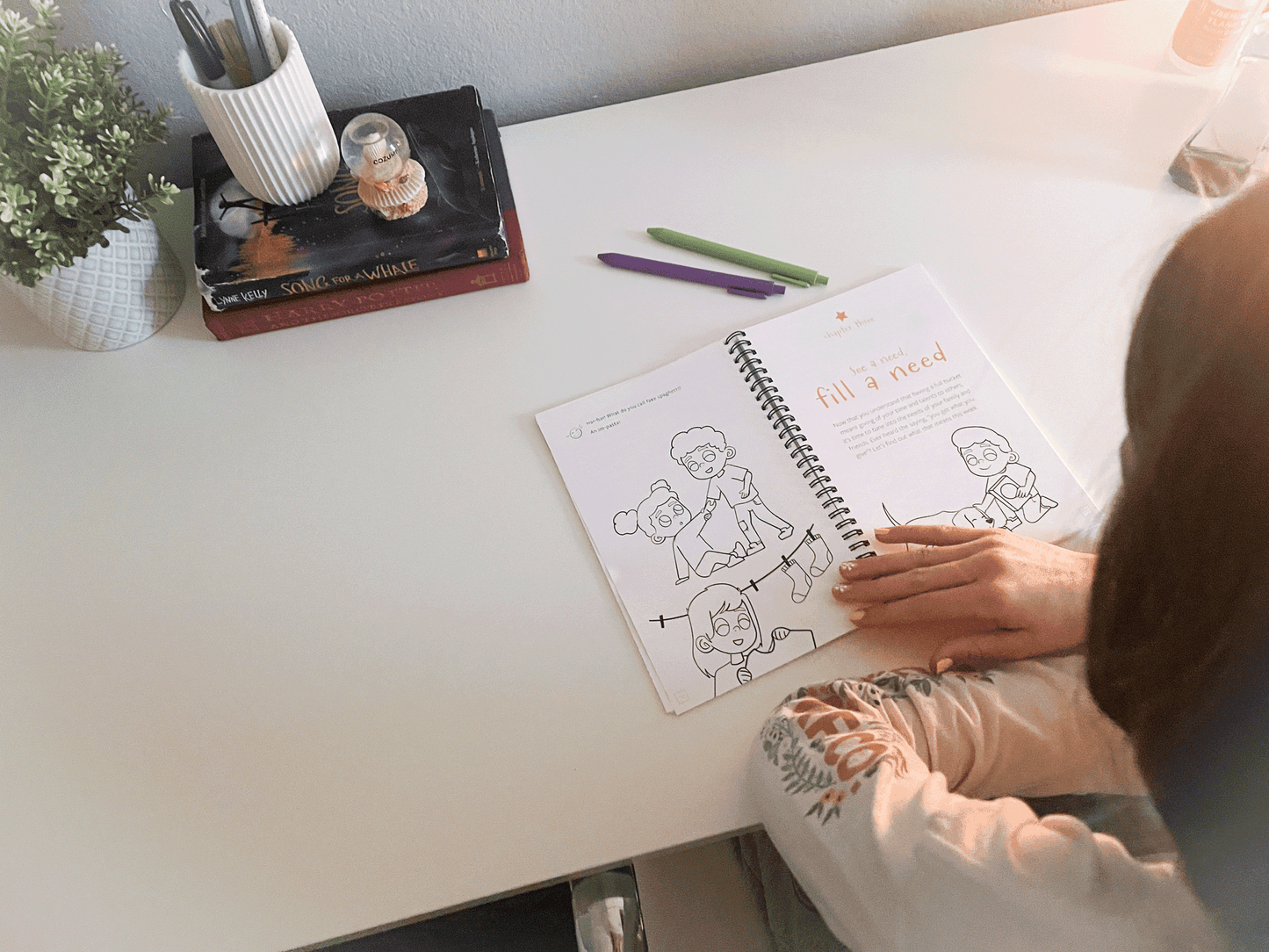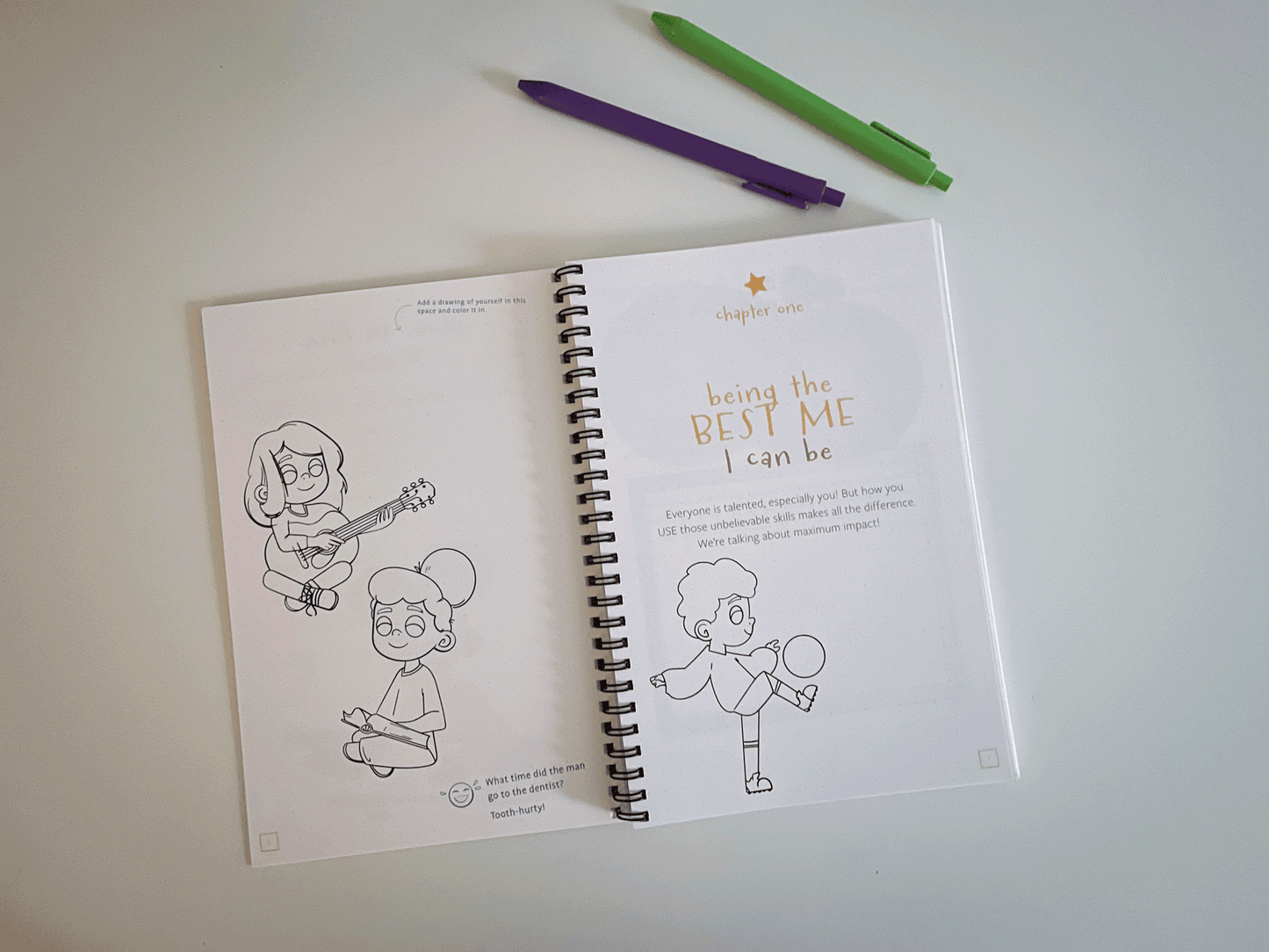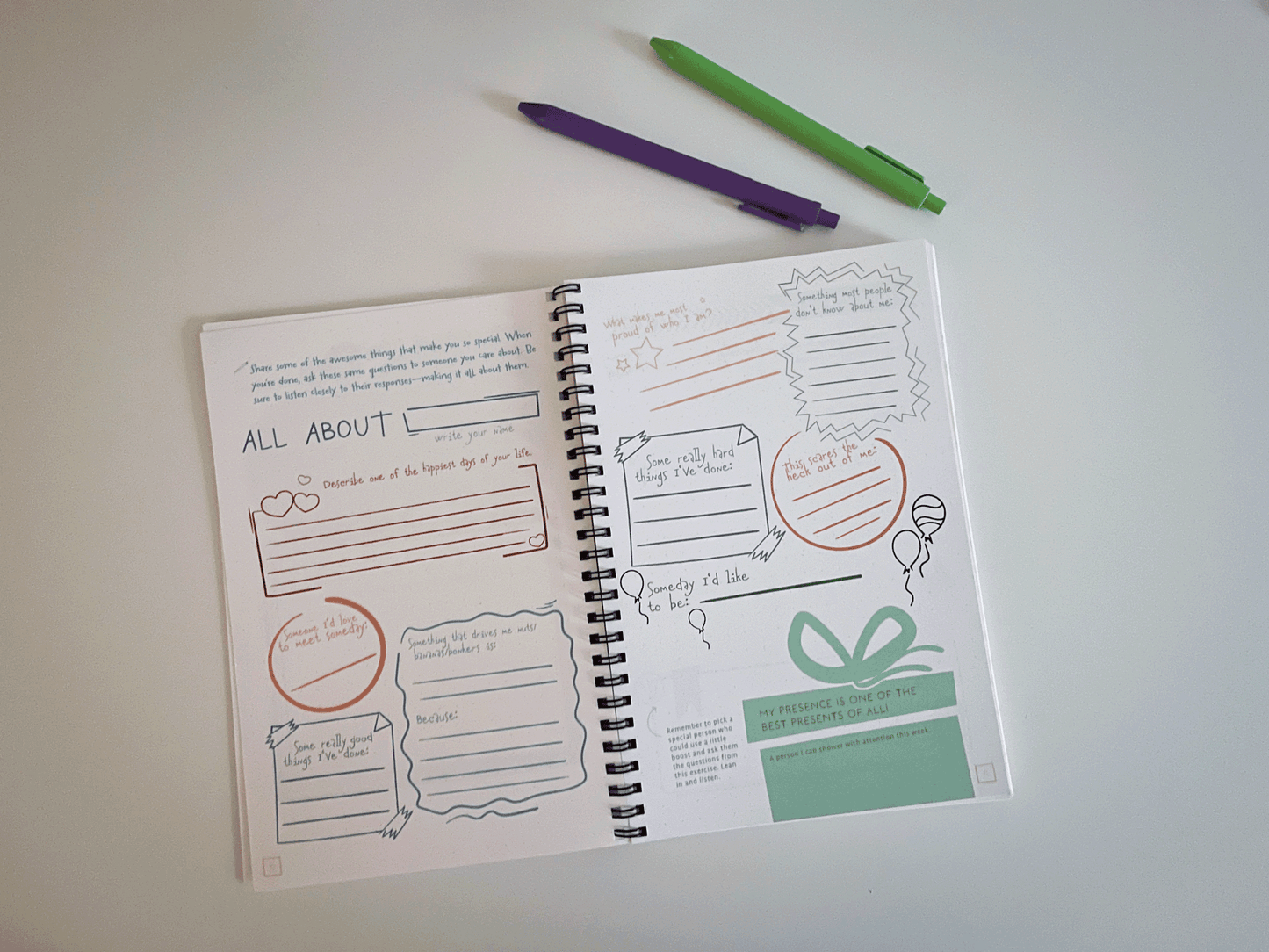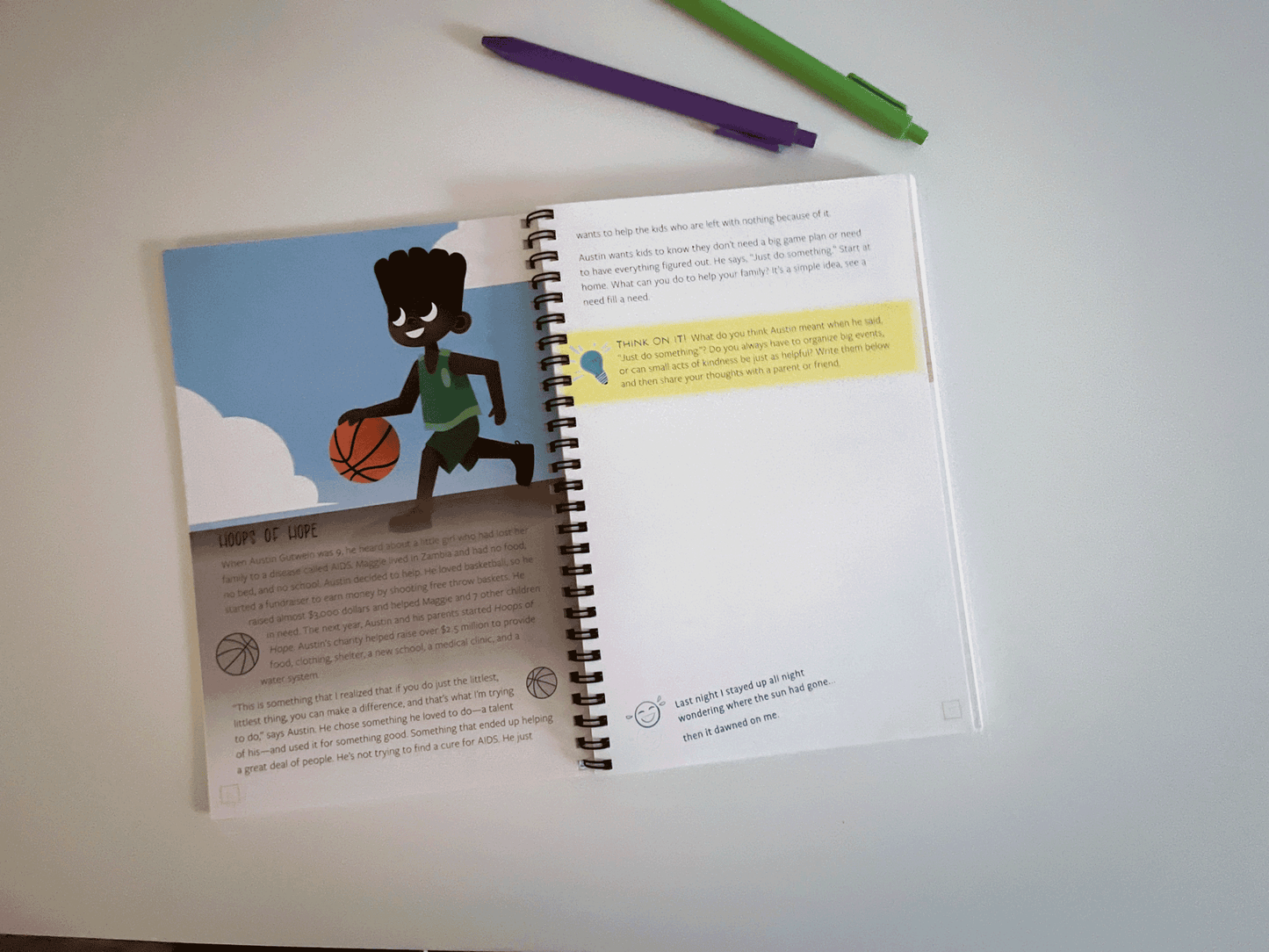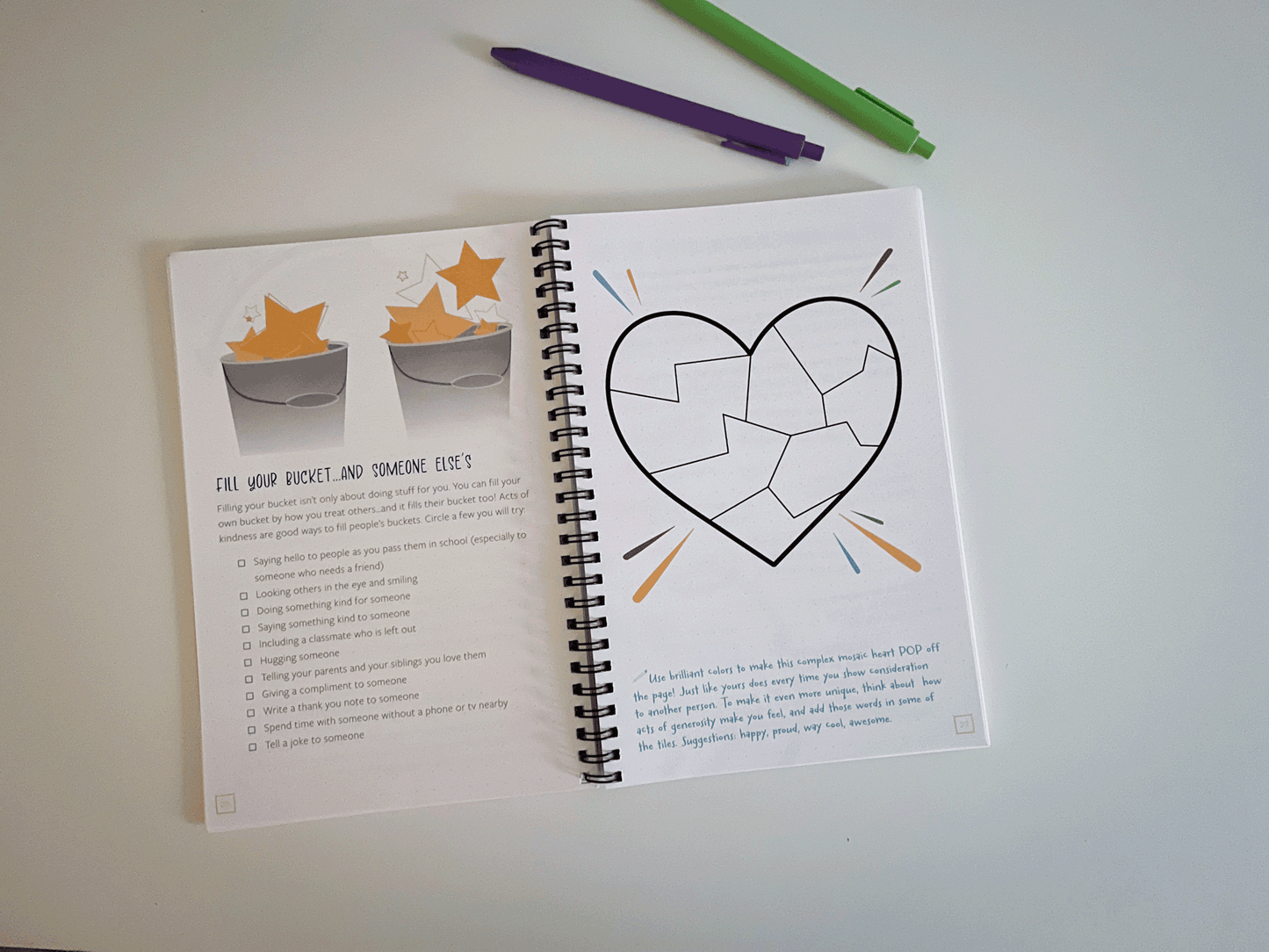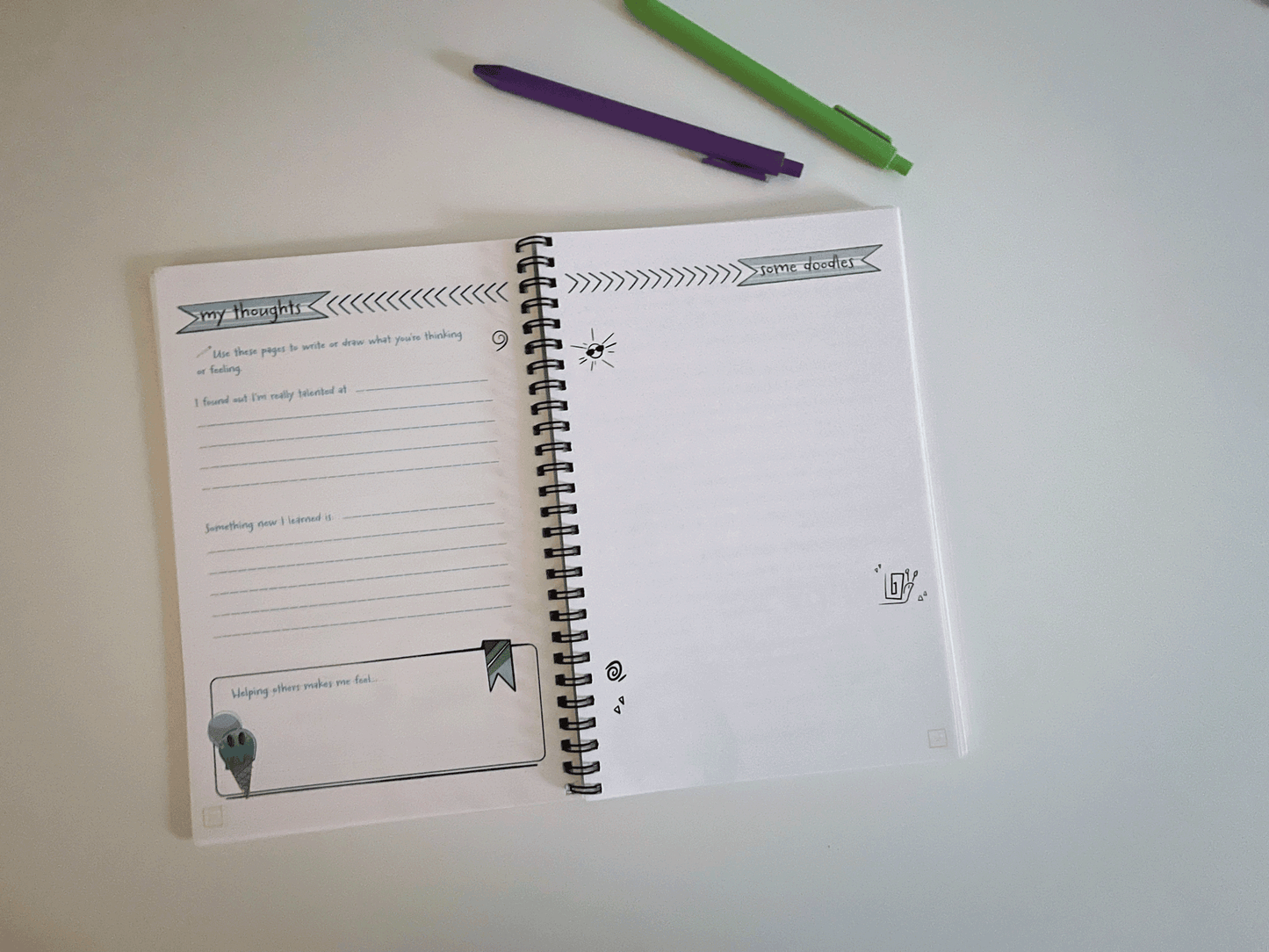WHAT ARE THE 40 VIRTUES? (FULL LIST)
Aly McCarthyWhat would your family life look like if your children (and even the adults in your family) treated themselves and others with respect, valued kindness and service, and even worked at being on time—all the time?

It doesn’t take a magic wand.
It’s not difficult to do if you have the tools available.
And, we promise you don’t have to swap out your kids for new ones.
After years of research, we know that instilling and developing virtues in ourselves and in our children is one of the best ways for families to thrive.
It brings joy and peace into the family and unites the family. The family unites to improve for each other, and this is what leads to happier and healthier lives.
Cultivating virtues leads a child to develop confidence and a more meaningful life. It makes daily life much more pleasant...for everyone, most especially parents!
And, once cultivated, they last a child’s lifetime.
Virtues are often confused with values in part because people often associate virtues with being good in some capacity—and the definition of good means different things to different people.
Some define virtue as doing what’s best for yourself. Others think of it as being your best self.
Then there are those who define virtues in the traditional context of being good—not gossiping, not cheating, not stealing.
Being virtuous includes all of these things, but there’s more to it than that. In fact, there are three distinct qualities that set virtues apart:
-
Habits
Virtue is not something innately ingrained when we are born, but rather, something we practice and improve on. Growing in virtue means forming a new habit and continuing that habit over time. -
Acts of Love
Virtues, at their core, are meant to be actions of love. Virtuous habits are not meant to be positive actions in and of themselves, or a means to get something we want, but rather each virtue should be considered an “act of love” or a gift of self. -
A Better Version of Ourselves
When we intentionally form virtuous habits, we open ourselves to new opportunities and a truer version of who we were created to be.

While it’s easy to see the value in improving how we live in virtue, it’s hard to know where to start.
The easiest way to get started is to pick one virtue you want to improve upon and set a goal to change your behavior in regard to that virtue over a period of time.
Remember, virtues are good habits developed out of love for others.
When you begin growing in one virtue, you’ll end up growing in many of them simultaneously!
Each of the 40 virtues listed below help build character and foster a sense of well-being...
-
Orderliness: Achieving our goals by doing the things we should do, when we should do them, and how we should do them. This involves keeping oneself physically clean and neat and one’s belongings in good order. It also means being on time. Kids ages 4-7 will enjoy building this character strength with our Paddle Tales: Stories on Orderliness, and kids of all ages love using our 5-star days checklists to keep them on track (for toddlers, it's the Toddler Tool Kit!).
-
Generosity: Giving good things to others freely and abundantly—not just money, but also time, knowledge, and skills. It's also the way in which we give...willingly and cheerfully. The 4th box in our Adventure into Character Subscription helps parents develop this virtue in their children and shows them that true happiness comes from giving of ourselves to others.
-
Courage: Standing up for what is right, even in the face of pressure. In the Screwtape Letters, C.S. Lewis wrote, “Courage is not simply one of the virtues, but the form of every virtue at the testing point.” The virtue of courage, when developed, helps kids stand up to bullies, or not give into peer pressure to participate in bullying, not cheat on tests, or not skip school.
-
Wisdom: This virtue allows us to determine what’s right and what’s wrong, stop and consider the consequences of our decisions before acting or speaking and then act accordingly. Developing this virtue allows one to differentiate between right and wrong in situations where different values might collide or there are no clear guidelines.
-
Justice: Giving to others what they are rightly due. A just person is distinguished by habitual right thinking and treating others fairly, and is someone who promotes equity. In order to help our children develop the virtue of justice, it’s important we guide them to stand up against unfair practices, defend the innocent, not blame the victim, and give to those in need.
-
Self-control: Managing our desires and wants in order to achieve a greater good and meet our life goals. Building self-control not only gives us willpower, but it also grows self-esteem. In today's day and age, with technology at the fingertips of our children, this virtue is imperative to develop. Help children jumpstart this important virtue with our Adventure into Character Subscription.
-
Assertiveness: Achieving goals by setting appropriate and positive boundaries, asking for help when we need it, and being confident and positive about our abilities. This virtue helps kids stand up for themselves in any situation and say NO to peer pressure, as well as being able to negotiate when having a disagreement. Assertiveness also builds confidence, self-esteem, and ability to form and maintain stronger relationships.
-
Helpfulness: Being of service to others and doing thoughtful things that make a difference in the lives of others, as well as our own. This virtue begins with observation and awareness. Through the virtue of helpfulness, we give of ourselves and grow in love. It does not mean taking over and doing everything ourselves. For example, as a parent, it means giving assistance while other times it means showing our kids how to do something and letting them do it on their own.
-
Modesty: Purity of heart in action, especially in regards to dress and speech. Modesty helps us dress in a way that safeguards our dignity. While we usually think of immodesty as not wearing enough clothing, one can also be guilty of being excessively modest or prudish. Modesty in speech encourages patience and moderation in relationships. In the age of social media, the virtue of modesty is grossly missing. Kids (and adults) could use a bit more modesty in what photos they’re posting, as well as what comments they leave.
-
Peacefulness: Having a sense of inner calm, no matter what is happening around us. It’s about being satisfied and content wherever we are or whatever is happening around us, and being in harmony with our goals and desires. This virtue allows us to be calm and poised in the midst of our crazy-busy lives and the stress that comes with it. When our children are peaceful, they are able to learn, grow, and develop into their own person. As a result, they learn how to be strong and confident in themselves and their abilities.
-
Service: Being helpful to the entire family of humankind. This can also be called beneficence, which means helping the greater community for the common good. Colleges often look for service hours when reviewing applications because a well-rounded person is someone who gives of himself/herself and recognizes the needs of the greater community.
-
Forgiveness: Handling disobedience, poor choices, and disputes in a reasonable and consistent manner by not being too strict, but not being too lax either. Forgiveness isn’t just saying sorry. It must be sincere and come from the heart. When we know how to forgive, we’re able to let go of resentment and allow ourselves to heal.
-
Purposefulness: Having a clear vision, strong focus, and concentration on goals where we do one thing at a time without wasted thoughts or energy. Our Adventure into Character Subscription is ideal for parents who would like to take their children on a journey through the virtues that build greater purpose in family life. Being purposeful means having a clear focus and a vision, which all of us can benefit from.
-
Good Counsel: Seeking advice from a reasonable person. This virtue enables us to know who we can trust to have our best interest at heart, as well as when to ask for help. It's important our children know how valuable it is to have a handful of trustworthy mentors available to them throughout their lives.
-
Responsibility: Fulfilling one’s duties and accepting the consequences of one’s words and actions—intentional and unintentional. Let’s face it, the world needs more people who are willing to take personal responsibility for their thoughts, words, actions, and their associated consequences. Teaching our children this virtue will help them throughout the rest of their lives, and, when times get tough, they can move through adversity much faster without playing the victim card.
-
Kindness: Expressing genuine concern about the well-being of others--anticipating their needs. As parents, we want our children to thrive in kindness, no matter their age. Our Adventure into Character Subscription helps parents infuse self-control, gratitude, and generosity in their kids so they can better control their impulses to technology or drugs, curb bullying, be great friends, and give of themselves to make the world a better place.
Get started today, and show your kids that kindness can be fun by creating your own Kindness Bingo game. Trust us, they will love it...and so will you!
-
Honesty: Sincerity, openness, and truthfulness in one’s words and actions. Honesty helps foster strong, meaningful, and happy relationships throughout our lives. Much of the suffering in families, in relationships, and even in society is due to dishonesty. This virtue helps us resist the temptation of instant gratification and cutting corners for our own self-interest. It also helps us understand discretion.
-
Respect: Recognizing the worth and dignity of every single human person. The virtue of respect allows us to live in harmony with others. When we respect our parents, we respect authority figures like teachers, our bosses, and even our neighbors. Respect can mean admiration for a person’s qualities or abilities as well as being courteous to or allowing others their rights. Respect can also mean a healthy regard for one’s self.
-
Tolerance: Allowing other people to have their opinions about non-essential things and accepting the preferences and ideas that are different from ours without compromising our own beliefs.
-
Perseverance: Taking the steps necessary to carry out objectives in spite of difficulties. Developing this virtue helps us be successful in life--no matter our goals or obstacles we face. From school and sports in our early years to business later in life, this virtue allows us to look adversity in the eye, overcome temptation to quit or be distracted, and continue giving 100 percent to achieve our goals.
-
Good judgment: Thinking rightly about a decision and making a sound decision. The virtue of good judgement is developed through experiences both good and bad, as well as reflection on those decisions. It’s important to allow our children to make decisions, as well as reflect on and learn from them.
-
Gratitude: Gratitude is also called thankfulness, but it’s not the same thing as saying “thank you.” It is having a thankful disposition of mind and heart. If we have gratitude, it can transform our entire outlook on life. Our Best Me I Can Be kid's journal takes children on a journey to grow this character strength and make gratitude a daily habit for a lifetime.
-
Humility: A humble person can be confident without being arrogant and maintain self-respect despite what others think. Humility is a virtue that helps kids be a better team player at school or in sports and own their mistakes. In the face of criticism, this virtue helps us fully consider what is being said instead of instantly defending ourselves.
-
Obedience: Assenting to rightful authority without hesitation or resistance. In today’s world, individual freedom and thoughts are put above all else, and obeying authority is seen as weak and a threat to personal freedom. However, the virtue of obedience is what keeps society from disintegrating into chaos and teaches us how to shed our pride and ego and be more humble for the greater societal good.
-
Patience: Remaining calm and not becoming annoyed when dealing with problems or difficult people. This could also mean paying attention to something for a long time without becoming bored or losing interest. Almost everyone has heard the statement, “Patience is a virtue!”
-
Leadership/Command: Directly acting upon a sound decision. Instilling this virtue in our children will prevent them from saying cruel things (or posting mean comments on social media) and helps them use their words wisely rather than resorting to fighting. It will also help them be better leaders.
-
Truthfulness: Acting in a way that inspires confidence and trust. Being a person whom others cannot count on blocks powerful and effective relationships from being built. Being reliable is a virtue that will take us far in school, at work, and in our relationships.
-
Moderation: Controlling our desires and wants in order to achieve a greater good and meet life’s goals. Self-denial can be difficult today because our culture promotes indulgence and self-gratification. This virtue is a combination of moderation and self-control that permits us to live a rich and rewarding life filled with good things that really matter. It can be challenging because it requires us to use self-discipline to limit (or even to deny ourselves) some pleasures.
-
Loyalty: Accepting the bond implicit in relationships and defending the virtues upheld by church, family, and country. The virtue of loyalty is critical to every relationship we have in life that matters. Teaching our children this virtue helps them build better relationships with friends, colleagues, and, eventually, their spouses.
-
Courtesy: Treating other people with respect and recognizing that all people are worthy of love and acceptance. When we speak and act courteously, we let others know we value and respect them. Developing this virtue helps us think about others before we act and makes our interactions with others more pleasant. It also helps our kids to ask rather than demand.
-
Friendliness: Being easy to approach and easy to talk to; being a friend during the best of times and worst of times. Being friendly is a virtue that will get us far in life, as it shows interest in other people and makes them feel seen and heard. When we invite people into a relationship, when we are curious about them, we have a more fulfilled life.
-
Sincerity: Trustfulness in words and actions; honesty and enthusiasm toward others. In today’s world, it can be difficult to express ourselves and be who we really are because we’re afraid of ridicule or backlash online. Sincerity is a virtue that allows us to be who we really are and freely express ourselves. When we are who we really are, rather than trying to be someone else, we have more self-love and self-respect. This, in turn, makes us happier and more fulfilled human beings.
-
Prayerfulness: Creating time each day for prayer, meditation, or mindfulness helps kids connect with a higher power. Connecting with a higher power helps them have hope, especially in tough times.
-
Greatness: Seeking with confidence to do great things; literally “having a large soul.” Otherwise referred to as the virtue of magnanimity, greatness is about pursuing what is great and honorable no matter how difficult. It means stepping out of our comfort zones and doing what will benefit ourselves and others the most.
-
Docility: Willingness to be taught, to learn, and to grow. The Latin root docere means to teach, and it’s where we get the words doctor and doctrine. Docility is the virtue of obedience and the openness to be taught. It’s about being open to new ideas and gaining truthful knowledge and applying it in our lives.
-
Industriousness: Being diligent and working energetically and devoutly, especially in work that leads to natural and supernatural maturity. It’s not about working to acquire more money, things, or status. This virtue helps us find self-worth and dignity in our work--whether personal or professional.
-
Foresight: Consideration of the consequences of one's action and thinking ahead. This virtue allows us to think about today while being mindful of the past and conscious of the future. Instilling this virtue in our children helps them think before they act and make better decisions throughout life.
-
Patriotism: Paying due honor and respect to one's country, with a willingness to serve. Patriotism is the feeling of love, devotion, and sense of attachment to a homeland and alliance with other citizens who share the same sentiment. Learning how to show patriotism means teaching our children proper respect and honor for their country.
-
Meekness: Having a serenity of spirit while focusing on the needs of others. True meekness is part of the virtue of self-control and remaining calm and not allowing oneself to be quick to anger. With today’s 24/7 news cycle and social posting, teaching our children the virtue of meekness will help them not react out of malice or anger, but rather count to ten and think before they act.
-
Tact: Careful consideration of circumstances and consequences. A person with tact is understanding, sensitive, and empathetic to others. They think before they speak and act and often keep critical and upsetting thoughts to themselves. Helping our children develop this virtue will help them immensely throughout their school years and into adulthood.





